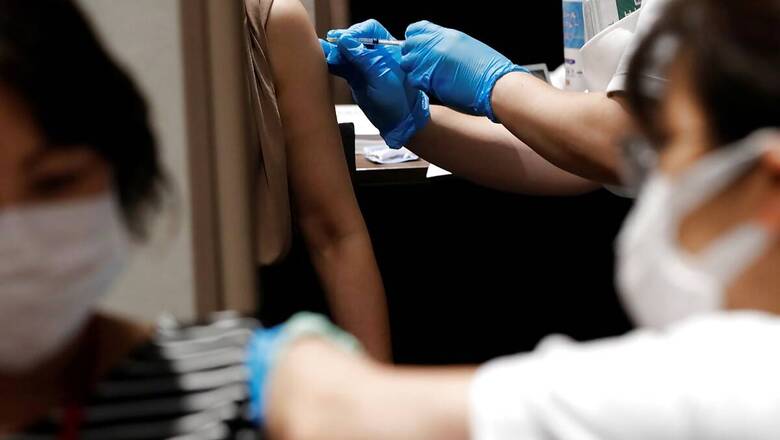
views
A new study by the Indian Council of Medical Research (ICMR) has revealed that neutralising antibodies against the Delta variant of coronavirus were not found in 16 per cent of serum samples from those who have received both doses of the Covishield vaccine and 58.1 per cent of those who were given the first shot. The study on recipients of the Oxford-AstraZeneca vaccine Covishield, which is being produced by the Serum Institute of India, is yet to be peer reviewed.
“Not observed is not equivalent to not present. The levels of neutralising antibodies could be significantly low that it did not get detected, but it may still be there and protect the person against infection and severe disease. Also, there would be some cell mediated protective immunity as well that can protect against infection and severe disease,” the Hindustan Times quoted Dr T Jacob John, former head of the department of microbiology at Christian Medical College-Vellore.
It was further found that the titres of the neutralising antibodies, that particularly target the Sars-CoV-2 virus and detroy it or prevent it from entering human cells, were also lower against the Delta variant in comparison to the B1 variant that was behind the first wave in India.
The comparison with B1 variant revealed that those who received one shot had 78 per cent lower neutralising antibody titres against the Delta variant, 69 per cent less in those who received two shots, 66 per cent in those who had the infection and received one shot, and 38 per cent in those who had the infection and received both shots.
The study indicates that some people in India might require an additional booster shot of Covishield while those who have previously contracted the disease may require just one.
“Assuming that the serum used for the study was from healthy individuals, the proportion of individuals with unobserved levels of neutralising antibodies will be higher among those who are old, comorbid, have chronic diseases as their immune response is lower. What this means is that men (women produce higher levels of antibodies) over the age of 65 years, those with diabetes, hypertension, chronic heart, lung, kidney diseases, or who are undergoing treatment for cancer should be given a third dose,” said Dr Jacob John.
“On the other hand, one dose is more than enough for an immune response in those who have had the infection,” he further said.
Read all the Latest News, Breaking News and Coronavirus News here.




















Comments
0 comment